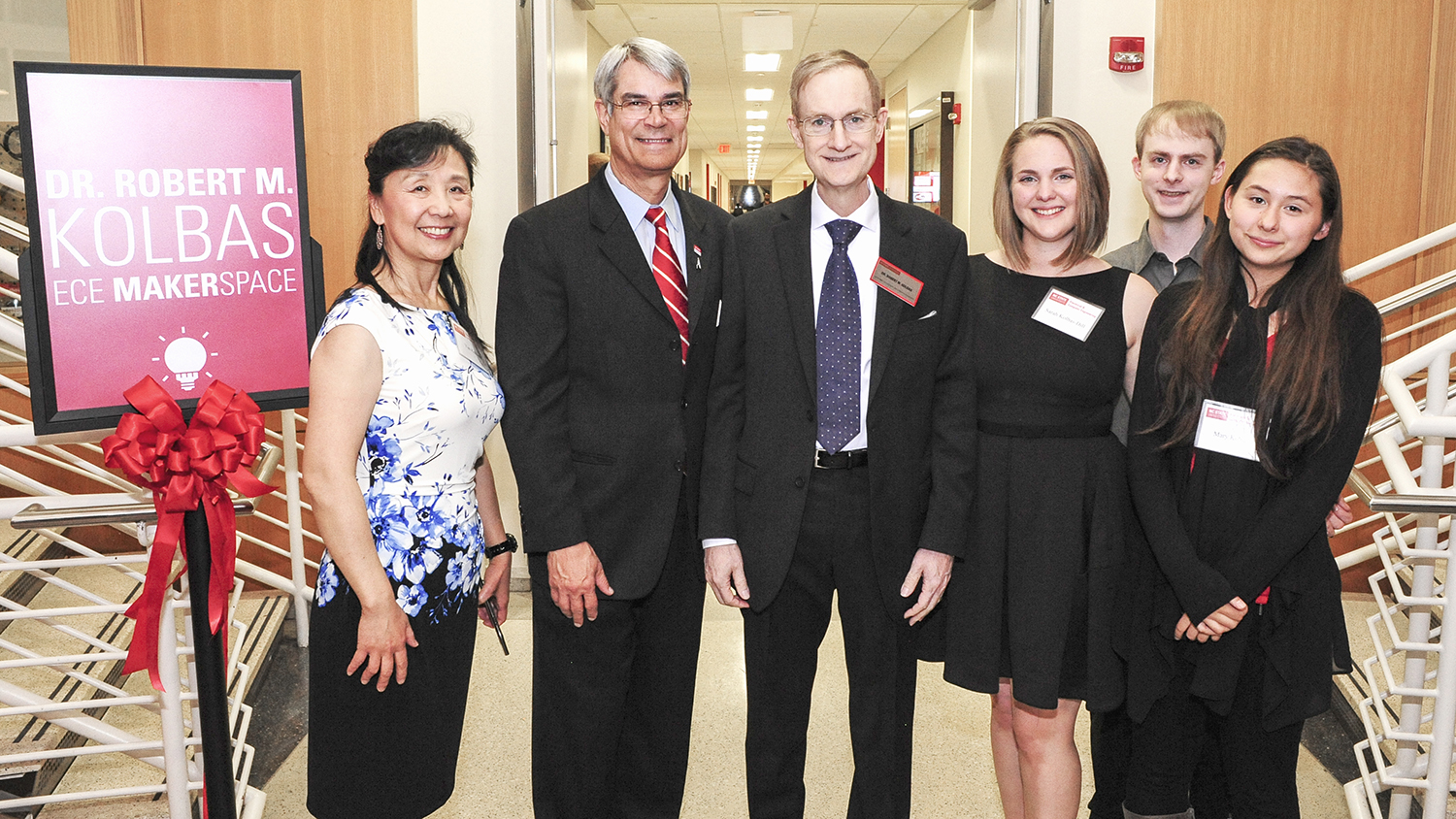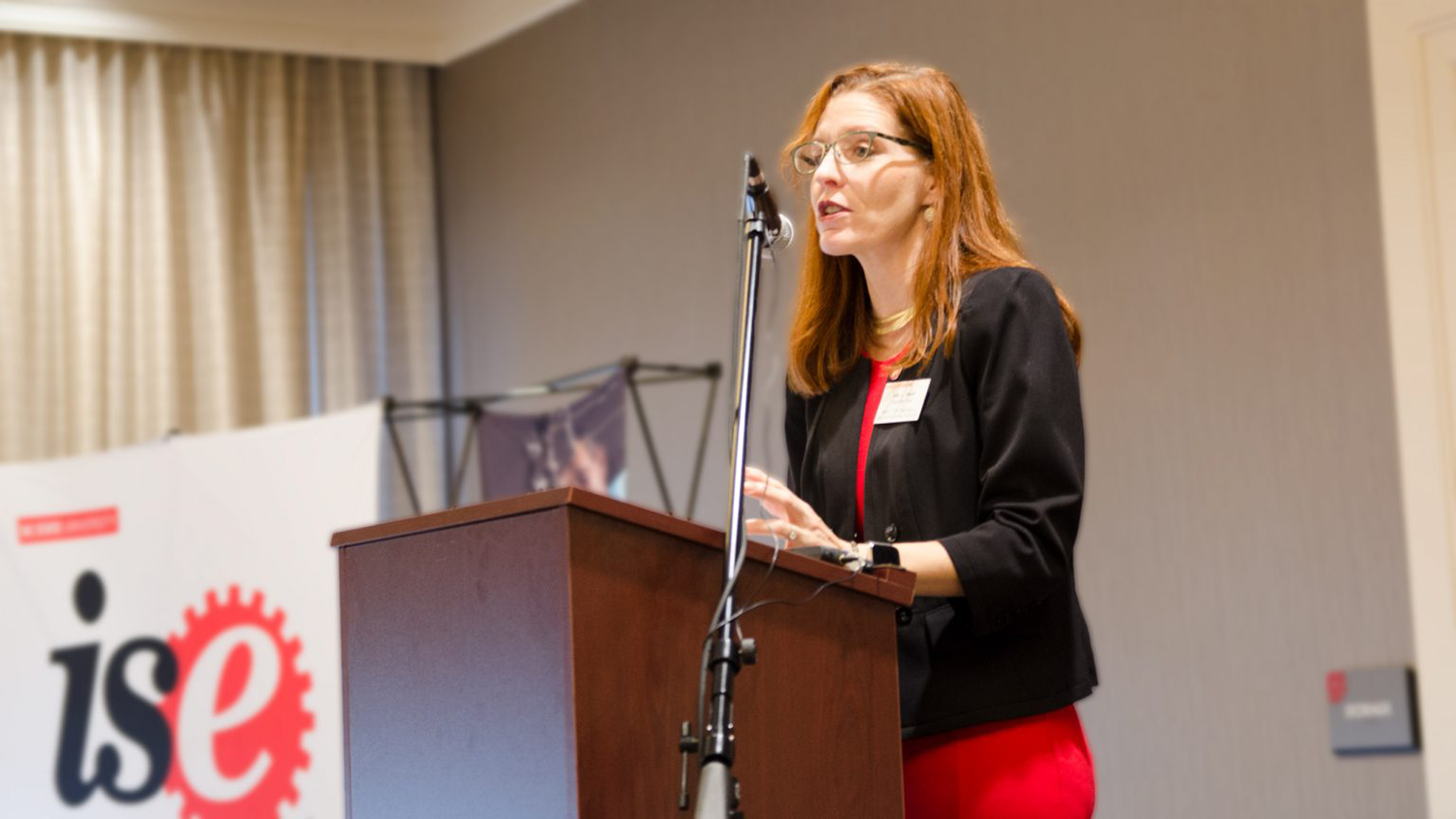Raleigh-Durham’s engineering prominence brings National Engineering Forum to region

RALEIGH, March 27, 2013 –– In Raleigh Wednesday night, the National Engineering Forum (NEF), along with North Carolina State University and Duke University, hosted a regional dialogue aimed at finding solutions to the top challenges facing American engineering. The dialogue brought together executive-level representatives from industry, academia, and government to discuss challenges facing America’s engineering enterprise.
“The National Engineering Forum is committed to advancing our nation’s engineering enterprise, and addressing the challenges it faces, which we call the 3C’s – capacity, capability, and competitiveness,” said Steve Betza, director of advanced manufacturing and development at Lockheed Martin. “These dialogues are spurring strategic actions necessary to ensure our nation has highly-skilled engineers to innovate solutions for the future. Raleigh-Durham is on the leading edge of innovation as the new home of our nation’s Next Generation Power Electronics Innovation Institute within the National Network for Manufacturing Innovation.”
“As one of the nation’s largest and most preeminent colleges of engineering, we have a critical role in educating and preparing future engineers,” said Louis Martin-Vega, dean of NC State’s College of Engineering. “We are pleased to continue our cooperative partnership with Duke and host this dialogue on advancing engineering at all levels, from kindergarten through graduate school.”
“Duke’s school of engineering is proud to co-host the Raleigh-Durham dialogue,” said Tom Katsouleas, dean of the Pratt School of Engineering at Duke University. “How our country prepares its next generation of engineers matters, and NEF recognizes that we need strong partnerships among educational institutions, industry and policymakers to develop engineering solutions to society’s 21st century problems.”
The Raleigh–Durham area is a key player in American engineering and was chosen for its significant role in biomedical research, IT, clean tech, and energy and smart grid innovations.
“Part of what makes North Carolina’s Research Triangle region so special is the proximity of major research universities to technology companies, which has fostered a high level of collaboration and generated advances in cutting-edge fields like biotech, emerging energy and green manufacturing. We’re excited about the opportunity the dialogue provides to build on those relationships to move our region and the nation forward,” Katsouleas said.
Chad Evans, executive vice president of the Council on Competitiveness, says NEF’s regional dialogues in the nation’s engineering hubs are building a community of action and will culminate in a cornerstone national event.
“In a globally competitive environment characterized by turbulence, transition and transformation, a sure thing on which America can count is its engineering prowess. Engineering is the creative engine at the heart of our nation’s productivity and prosperity – providing us the energy to overcome challenges and seize on the opportunities for future growth,” said Evans. “The National Engineering Forum’s purpose is to bring together leaders across all sectors of our society – industry, academia, labor, national laboratories, government leaders and media – to partner and foster the environment in which engineering can continue to thrive and lead to the innovative solutions at the heart of competitiveness.”
Martin-Vega agreed. “Collaboration and interdisciplinary research and education are key to solving society’s greatest engineering challenges. As the lead institution on two National Science Foundation Engineering Research Centers, NC State demonstrates the power of inter institutional partnerships. NEF is another great example of how industry, government and academia can work together to develop a better path forward to economic growth and societal progress,” he said.
NEF regional dialogues have been held in 11 cities, and is preparing to announce more for the 2014 series.
About the National Engineering Forum
The National Engineering Forum (NEF) brings together leaders concerned about the sustainability of the United States engineering field and the impact on the nation’s security and prosperity. NEF involves industry executives, academics, policymakers, media, engineering societies, and nonprofits to develop solutions to the challenges facing the U.S. engineering enterprise. For more on NEF, visit: www.nationalengineeringforum.com or follow us on Twitter @NatlEngForum.
Media contact
Melissa Mathews
202-969-3410
media@nationalengineeringforum.com
- Categories:


